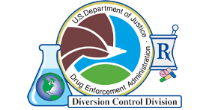CMEA News Release
DEA Issues Regulations to Implement the Combat Methamphetamine Epidemic Act of 2005
DEA offers many resources to help guide retailers through the process
U.S. Department of Justice
Drug Enforcement Administration
Karen P. Tandy, Administrator
www.dea.gov
Date: September 19, 2006
Contact: Garrison Courtney
DEA Public Affairs
Number: 202-307-7977
(WASHINGTON, D.C.) – The retail provisions of the Combat Methamphetamine Epidemic Act of 2005, which requires all regulated sellers of over-the-counter medications containing pseudoephedrine, ephedrine, and phenylpropanolamine to complete a required training and self-certification process, goes into effect across the United States on Saturday, September 30th. Ephedrine, pseudoephedrine, and phenylpropanolamine are common ingredients in cough, cold, and allergy products and are also used in the illicit manufacture of methamphetamine or amphetamine.
On this date, stores will be required to keep all non-prescription products containing pseudoephedrine, ephedrine, and phenylpropanolamine behind the counter or in a locked cabinet, and consumers will be required to show proper identification and sign a logbook for each purchase. The logbook will contain their name, address, date and time of sale, name and quantity of the product sold, and the signature of the customer. The Act also implements daily sales limits and monthly purchase limits of these products.
In addition to these new requirements, in order to comply with federal law, regulated sellers are mandated to complete a self-certification process that includes training their employees on the new regulations and procedures. The final stage in the self-certification process is for regulated sellers to complete an online application on the DEA Diversion Web Site. Once this application is submitted, DEA will send a confirmation email, which will generate a self-certification certificate.
Some aspects of the Combat Methamphetamine Epidemic Act of 2005 have already become effective. On April 8, 2006, the following requirements became effective:
-
The daily sales limit of 3.6 grams per purchaser, regardless of the number of transactions
-
The requirement that all nonliquid forms (including gel caps) of products containing pseudoephedrine, ephedrine, or phenylpropanolamine be packaged in blister packs, each blister containing not more than two dosage units, or where blister packs are technically not feasible, products may be packaged in unit dose packets or pouches
-
The requirement that persons distributing products containing pseudoephedrine, ephedrine, or phenylpropanolamine through the U.S. Postal Service or private or commercial carriers must confirm the identity of the purchaser prior to shipping the product.
The retail provision outlined in the regulation becomes effective September 30, 2006. Congress specified this date in the statute itself, and the DEA has no discretion regarding its implementation. DEA is aware of the short period of time available for retailers to come into compliance with the regulations and will work with industry to provide compliance assistance to ensure that retailers are able to sell covered medications in accordance with the requirements of the law. DEA has established the following resources to answer questions and to help guide retailers through each step of the self-certification process:
Telephone number to answer questions: 202-307-7297
Email questions to: dea.diversion.policy@dea.gov
Details and answers to commonly asked questions are at: www.deadiversion.usdoj.gov/meth/combat-methamphetamine-epidemic-act.html
To complete the self-certification process go to this site: www.deadiversion.usdoj.gov

